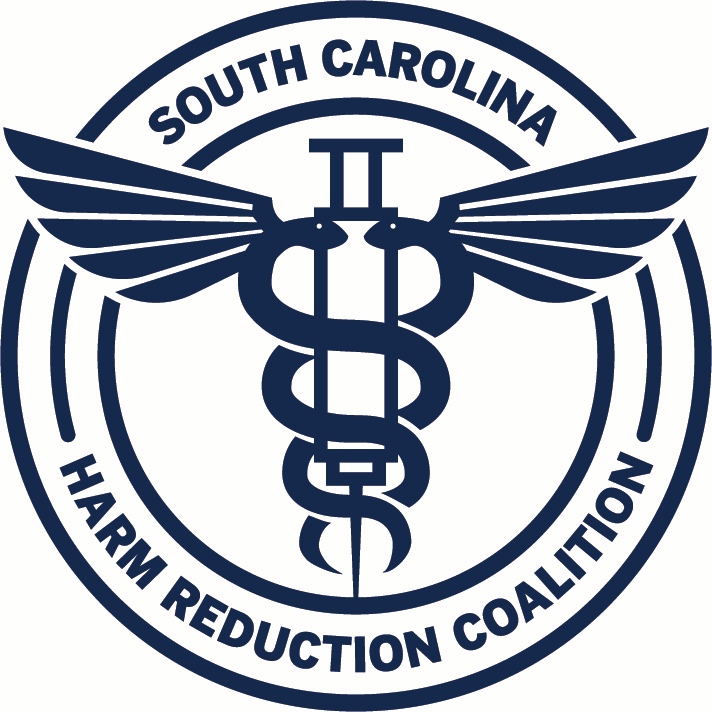Once taboo, Greenville nonprofit now has big partners in opioid needle exchange
Once taboo, Greenville nonprofit now has big partners in opioid needle exchange
By Conor Hughes chughes@postandcourier.com
May 2, 2024
GREENVILLE — A dozen or so people waited in the parking lot off Augusta Road, gray clouds above threatening rain at any moment. Some milled on the cracked pavement, others huddled against a low wall farther from the road, a white cross stretching above their heads.
Most of them came from one of the nearby extended-stay motels that dot the side of the highway.
At around 3:15 in the afternoon, a bus with the words "Challenges Inc." and a big red cross painted on its side rolled into the lot.
Inside were clean syringes, doses of the overdose drug naloxone and tests for hepatitis C and HIV.
Marc Burrows, Challenges Inc.'s founder, opened the door and began handing out the supplies as the disorganized group lined up single file.
"It's definitely getting busier and not getting slower," he said during the harm reduction giveaway on April 26.
Within the first few minutes, one of the volunteers with Challenges had administered a half-dozen hep C and HIV tests. A mobile unit from Prisma was parked nearby, offering treatment, connection to services and medications used to treat addiction such as suboxone.
The organization, which Burrows started in 2017, focuses on providing services to lessen the negative health outcomes of drug use. Part of that effort was establishing South Carolina's first and only needle exchange.
When he started, there was no bus or team of volunteers. He was a one-man operation, handing out syringes and other supplies out from the trunk of his car. Even today, what he does remains in a legal gray area in South Carolina, and at the outset, other providers were reluctant to partner with him.
"We were the black sheep," he said. "Everyone was afraid to touch us."
Some organizations refused to work with the group outright, apprehensive about the legality of what Burrows was doing. Others agreed to partner with him, but they kept the handshake agreement largely off the books.
That has changed.
Legal fears about the needle exchange have dissipated somewhat, in part because in eight years Burrows has never had an issue with the police, and attitudes are shifting on the role harm reduction plays in battling the opioid epidemic. A lack of legal clarity remains an obstacle, but local government is beginning to buy into the idea.
Recently, Greenville County Council voted to appropriate $50,000 in opioid lawsuit settlement funds to the county EMS department to not only bolster its naloxone supply, but also to start a needle exchange program.
Another portion of that money — which comes from lawsuits against opioid manufacturers and distributors — will go to the detention center to begin a drug-assisted addiction treatment program.
Challenges Inc. will get more than $200,000 of it, allowing the nonprofit to get its own space and hire employees for the first time. Burrows, who has been operating Challenges on a volunteer basis for the past seven years, will have a paycheck as its director for the first time.
Dr. Alain Litwin, a physician specializing in addiction medicine, came to Greenville to work at Prisma Health in 2017. In the past seven years, he said, he's seen broad support for harm reduction programs such as needle exchanges continue to grow.
Syringe service was the central subject of a symposium Prisma hosted in Greenville last year, which Litwin helped organize. Decades of research has found it reduces the spread of infectious disease, forges stronger connections to health resources and creates a greater likelihood that people suffering from addiction will get into treatment.
Plus, Litwin said, they reduce the number of dirty needles on the street that might otherwise end up on sidewalks or in a public trash can.
"It's really a home run in terms of the good things it does," he said.
And the nonjudgmental, need-oriented nature of the work Challenges does opens access to a population that is often difficult to reach. Burrows said that while other groups early on were reluctant to partner with his organization, many are now eager to work with it because it's a draw for the most difficult users to connect with.
One man who had been waiting in the parking lot said he'd been coming to the mobile unit for about five months. He hasn't shared a needle since and often gives clean syringes to people he knows.
A woman said she also uses the mobile unit to stock up on naloxone. Her son died of an overdose several years ago, so now she makes sure to always have some of the overdose reversal drug with her.
The nonprofit's work, along with the efforts of other organizations such as the Phoenix Center and FAVOR Upstate, are partly responsible for Greenville County seeing in 2023 its first decline in opioid overdose deaths in five years, Litwin said. There were 218 last year, as opposed to 284 in 2022.
With steps like the creation of drug-assisted addiction treatment at the county jail and EMS investing in harm reduction, the physician said he's hopeful the progress will continue.
